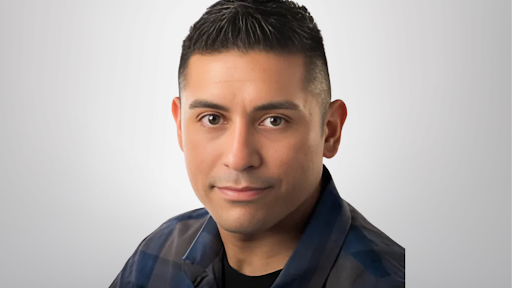
During the pandemic, Roy Virgen Jr found himself teaching marketing classes from home, wrestling with unstable Wi-Fi and the unpredictable schedule of his three-year-old son. While many Americans spent lockdown perfecting sourdough or binge-watching streaming shows, Roy focused on a different kind of recipe: creating opportunities for aspiring entrepreneurs through targeted scholarships. In a country where student debt looms as large as the Hollywood sign, he decided to offer something richer than a diploma —real opportunity.
A Scholarship With Teeth and Purpose
Roy Virgen Jr's scholarship for aspiring entrepreneurs is not just another ceremonial handout. He started a scholarship nonprofit under his own name, specifically to support people in need who want to become entrepreneurs. He says, "You can't take it with you when you leave the world. So, I mean, give back when you can." The $1,000 award may seem modest, but for students with big ideas and limited resources, it can mean the difference between launching a business and shelving a dream.
Roy's scholarship stands out for its focus on nurturing genuine entrepreneurial spirit. His goal is to support students who demonstrate both academic excellence and a passion for building something meaningful. He believes that entrepreneurship is about solving problems and creating value for society, not just starting a business for profit. This philosophy is reflected in his efforts to encourage applicants who propose business ideas that make a positive impact.
From Corporate Cubicles to the Classroom
Roy's journey from corporate management to academia reads like a screenplay that would make even the most jaded producer pause. He spent about 15 years in the corporate world, working for companies like UPS and Macy's, before transitioning into higher education. He lectures on marketing at the University of California, Irvine, University of California, Riverside, and is still on record at Cal State Los Angeles. His classes focus on practical skills and real-world projects, not just textbook theory.
American Management University, which he founded in 2018, faced early struggles and nearly closed during the pandemic. Roy nearly sold the school, but when the deal fell through, he took it as a sign to keep going. He converted it to a nonprofit and moved operations to France, where regulations proved more flexible. The university now serves a global student base and continues to add accreditations. Roy continues to consult in marketing and digital advertising, helping small businesses and educational startups find their footing.
Mentorship and the Myth of the Lone Entrepreneur
Roy understands that entrepreneurship is rarely a solo act. He tells his students, "It's not just what you know, it's who you know." His efforts extend beyond scholarships. He operates two nonprofits: one focused on scholarships for aspiring entrepreneurs and another, which recently filed for 501(c)(3) status, dedicated to business networking and mentorship. These organizations aim to break down the barriers that keep talented students from entering the business world.
He directs donations to nonprofits and small businesses in California, even though he now operates from France. His mission is to level the playing field for those who might otherwise be left behind. He says, "Entrepreneurship should be about ideas, not inheritance." That philosophy guides every dollar he gives and every student he mentors.
Roy's vision for his nonprofit business organization is to provide mentorship and networking for students who want to meet people in their field. He recognizes that the biggest drawback for students is not knowing how to get that first job, observing, "It's only who you know all the time." He wants his nonprofit to allow for mentorship and business networking, helping students overcome the barriers to entry in their careers.
The Ripple Effect of Real Support
Roy's impact can be seen in the students and communities he supports. His mentees are starting businesses, landing jobs, and, in turn, supporting others. He avoids empty gestures and focuses on support that changes lives. In an era when business leaders often chase headlines with empty promises, Roy delivers substance. He invests in people, not just portfolios, and expects those he helps to pay it forward.
If more leaders followed Roy Virgen Jr's example, perhaps the next wave of business giants would come from unexpected places — from students who once thought the American Dream was out of reach. Roy's mission proves that targeted support, paired with a belief in potential, can change lives and reshape the future of entrepreneurship.
So here's the kicker: If hope is contagious, Roy Virgen Jr might just be the super-spreader the business world needs.







